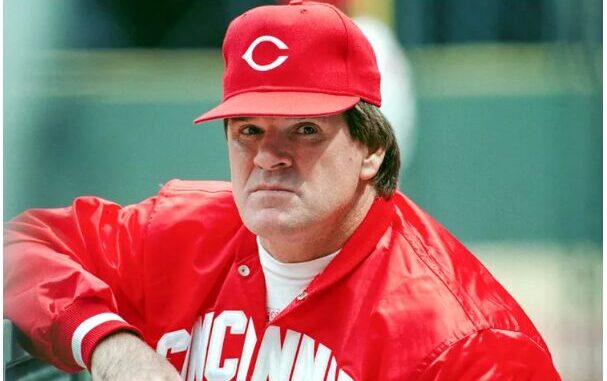
The all-time leader in career hits and a once-revered figure in baseball who tarnished his legacy and Hall of Fame prospects by betting on the game he cherished, has passed away at the age of 83. Stephanie Wheatley, a representative for Clark County, Nevada, announced He died on Monday, with the exact cause and manner of death still under investigation. For fans who grew up in the 1960s and 70s, no player was as electrifying as the Cincinnati Reds’ No. 14, known as “Charlie Hustle.” With his shaggy hair and toned forearms, Rose represented the old-school spirit of baseball at a time when the sport was evolving with artificial fields, divisional play, and free agency. His aggressive style, running hard to first base after a walk or diving headfirst into bases, made a lasting impression. A 17-time All-Star, Rose was integral to three World Series victories. He was named the National League MVP in 1973 and earned the World Series MVP award two years later. He holds Major League Baseball records for games played (3,562) and plate appearances (15,890) and also set the National League record for the longest hitting streak at 44 games. As the leadoff hitter for the formidable Reds championship teams of 1975 and 1976, he played alongside Hall of Famers Johnny Bench, Tony Perez, and Joe Morgan. However, nothing compares to his total of 4,256 hits, which surpassed his idol Ty Cobb’s record of 4,191. This number symbolizes his skill, despite the controversies that followed him. It’s an achievement so remarkable that one could average 200 hits for 20 years and still fall short. Rose’s success was rooted in his consistency and longevity. Over 24 seasons, mostly with the Reds, he achieved 200 hits or more ten times and had over 180 hits four other times. He maintained a batting average of .303 while moving between second base, outfield, third base, and first base, leading the league in hits seven times. Rose often remarked, “Every summer, three things are going to happen: the grass is going to get green, the weather is going to get hot, and Pete Rose is going to get 200 hits and bat .300.”
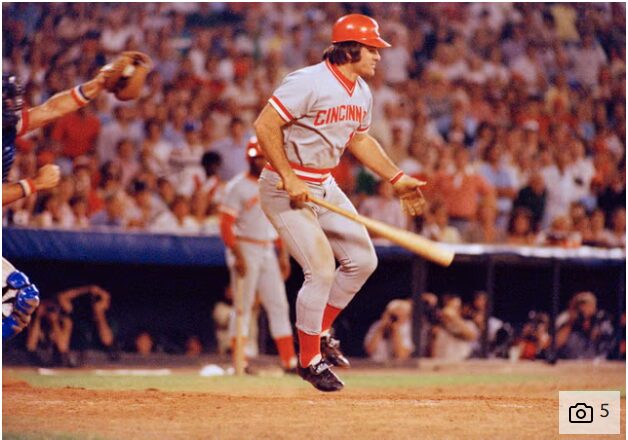
Rose reached the milestone of 1,000 hits in 1968, then hit 2,000 five years later and 3,000 another five years after that. In 1982, he moved into second place on the all-time hits list, surpassing Hank Aaron with his 3,772nd hit. He recorded his 4,000th hit against the Phillies’ Jerry Koosman in 1984, exactly 21 years after his first hit. On September 8, 1985, he tied Ty Cobb’s record, then broke it just three days later in Cincinnati, where his mother and teenage son, Pete Jr., were among the attendees. At 44 years old, Rose was serving as the team’s player-manager. During the first inning against the San Diego Padres, he connected with a 2-1 slider from pitcher Eric Show and sent it into left field for a single. The crowd of over 47,000 erupted in cheers, and the game was temporarily paused to honor the achievement. Rose received the game ball and the first base bag, and he openly wept on the shoulder of first base coach and former teammate Tommy Helms. He expressed his love to Pete Jr., who would later play briefly for the Reds, saying, “I love you, and I hope you pass me.” He reflected on his late father, a star athlete who had encouraged him to pursue sports from a young age. He also thought of Cobb, the legendary player from the dead-ball era whom Rose admired so much that he named one of his sons Tyler.
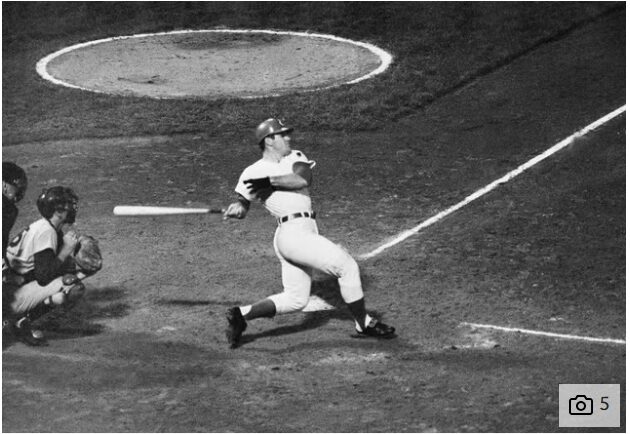
Baseball Commissioner Peter Ueberroth, watching from New York, proclaimed that Rose had “reserved a prominent spot in Cooperstown,” indicating his eventual induction into the Hall of Fame. After a Reds’ 2-0 victory, in which Rose scored both runs, he received a call from President Ronald Reagan. “Your reputation and legacy are secure,” Reagan told him. “It will be a long time before anyone stands where you are now.” However, just four years later, everything changed. On March 20, 1989, Ueberroth—who was soon to be succeeded by A. Bartlett Giamatti—revealed that his office was conducting a “full inquiry into serious allegations” regarding Rose. Reports surfaced that he had been using a network of bookies and acquaintances to place bets on baseball games, including some involving the Reds. While Rose denied any misconduct, the investigation discovered that “the accumulated testimony of witnesses, along with documentary evidence and phone records, revealed extensive betting activity by Pete Rose in connection with professional baseball, particularly Reds games, during the 1985, 1986, and 1987 seasons.” In August 1989, at a press conference in New York, Giamatti delivered some of the saddest words in baseball history: “One of the game’s greatest players has engaged in a variety of acts that have stained the game, and he must now live with the consequences.” Giamatti officially announced that Rose had accepted a lifetime ban from baseball, a ruling that the Hall of Fame would declare made him ineligible for induction in 1991. Despite this, Rose tried to minimize the impact of the news, claiming he had never bet on baseball and that he would eventually be reinstated.
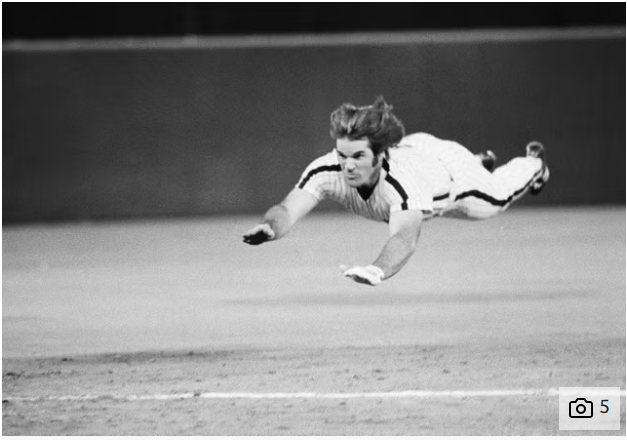
At first, it was all about the game for Pete Rose. Growing up in Cincinnati’s working-class neighborhood, his father, Harry Francis Rose, taught him to be a switch hitter, much like Mickey Mantle’s dad did. Pete honed his skills using a broom handle and a rubber ball thrown to him by his younger brother, Dave. After graduating high school in June 1960, he flew to Rochester, New York, just two days later, then took a bus 45 miles to Geneva, home to the Reds’ Class D minor league team. By 1962, he had moved up to Class A in Macon, Georgia, where he batted .330 and declared his intention to take the Reds’ second baseman Don Blasingame’s spot in 1963, telling a reporter, “I’m going to be on his heels.” By midseason, Blasingame had joined the Washington Senators, and Rose had become a sensation. Yankees pitcher Whitey Ford reportedly dubbed him “Charlie Hustle” after seeing him sprint to first base after walking during spring training. In his rookie season, Rose hit .273 and went on to bat .300 or higher in 14 out of the following 15 seasons. His reliability was evident when, in 1968—the “Year of the Pitcher”—he led the league with a .335 average, earning one of his three batting titles.
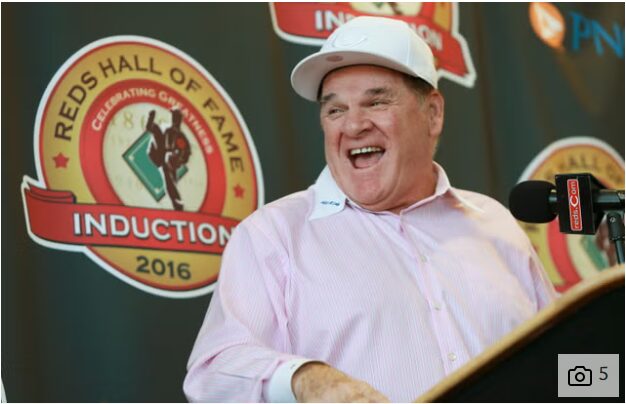
After his baseball career, Pete Rose was honored by a few associations. The Reds inducted him into the team’s Hall of Fame in 2016, the year before a bronze sculpture of his famous slide was unveiled outside Cincinnati’s Great American Ball Park. Although Rose himself was never inducted into Cooperstown, his career is well represented there. The Baseball Hall of Fame features several items, including his helmet from his MVP season in 1973, the bat he used during his 44-game hitting streak in 1978, and the cleats he wore in 1985 when he became the all-time hits leader.

Leave a Reply